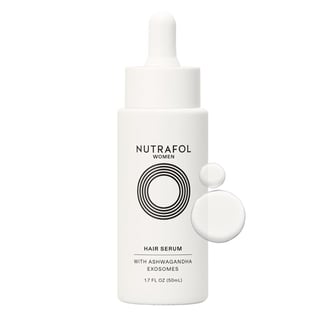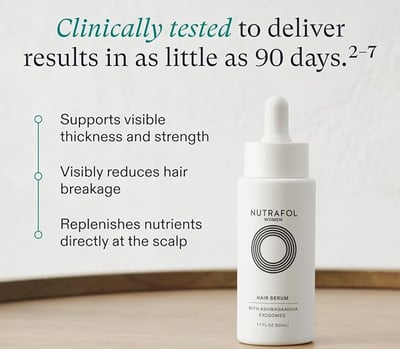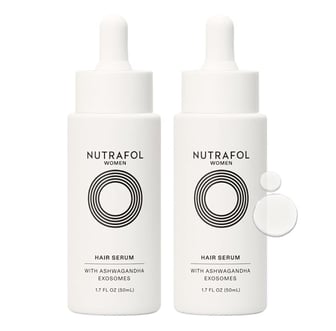The Importance of Essential Oils in Your Hair Care Routine: Benefits and Tips


Understanding the Importance of Essential Oils for Hair
Essential oils have garnered significant attention in the realm of hair care due to their multifaceted benefits. These natural extracts are derived from botanical sources and are celebrated for their potent properties that can bolster hair health.
Among the most notable advantages is their ability to promote hair growth. Scientific studies suggest that essential oils like rosemary can stimulate blood circulation in the scalp, thereby encouraging hair follicles to produce stronger and healthier hair strands.
Another critical benefit of essential oils is their efficacy in reducing dandruff. For instance, tea tree oil is renowned for its antifungal and antibacterial properties, which can address the root causes of dandruff and maintain a healthier scalp environment.
Similarly, peppermint oil has a soothing effect that can alleviate scalp irritations and dryness, further contributing to dandruff reduction.
Beyond these specific benefits, essential oils also offer holistic advantages. Lavender oil, for instance, is not only known for its potential to improve hair growth but also for its calming aromatic properties. The therapeutic effects of lavender can provide a relaxing and enjoyable hair care routine, enhancing overall well-being.
It's crucial to recognize that different essential oils cater to distinct hair concerns. For example, while peppermint and rosemary oils are excellent for stimulating hair growth, oils like chamomile and lavender are better suited for soothing and moisturizing the scalp.
Therefore, understanding each essential oil's unique properties can help tailor a more effective and personalized hair care regimen.
Scientific research continues to support the myriad benefits of essential oils in hair care. Studies have shown that these natural extracts can improve scalp health, reduce hair thinning, and enhance hair's overall texture.
Such evidence underscores the importance of integrating essential oils into your hair care routine, not just for their direct benefits but also for the added aromatic and therapeutic effects that contribute to a more holistic approach to hair wellness.
How to Incorporate Essential Oils into Your Hair Care Routine
Integrating essential oils into your hair care routine can be both simple and highly effective. One of the easiest methods is to add a few drops of your chosen essential oil to your regular shampoo or conditioner. For instance, you might incorporate lavender oil for its calming properties or rosemary oil to promote hair growth.
It's essential to mix thoroughly to ensure an even distribution, which will help you reap the benefits without the risk of skin irritation.
Creating DIY hair masks is another excellent way to utilize essential oils. For a nourishing treatment, combine one tablespoon of coconut oil with five drops of essential oil, such as peppermint for its invigorating effect.
Apply the mixture evenly to your hair and scalp, leave it on for about 30 minutes, and then rinse thoroughly. This method not only hydrates and strengthens your hair but also provides a relaxing self-care experience.
Scalp massages are a fantastic way to stimulate hair follicles and promote growth. Mix a carrier oil, such as jojoba or almond oil, with a few drops of essential oil. Massage this blend into your scalp in circular motions for about five minutes.
This practice not only enhances blood circulation but also allows the essential oils to penetrate deeply, thereby maximizing their benefits.
Proper dilution is crucial when using essential oils. Typically, a safe dilution ratio is around 2-3% essential oil to carrier oil, which equates to about 12-18 drops of essential oil per ounce of carrier oil.
This helps prevent skin irritation and ensures that the essential oils are effectively absorbed.
Consistency and patience are key when incorporating essential oils into your hair care routine. Natural remedies often require regular use over an extended period to yield visible results.
Therefore, it's important to maintain a consistent regimen, whether you're applying essential oils weekly or incorporating them into your daily hair care practices.
For those interested in specific recipes, consider a tea tree oil treatment for dandruff. Mix three drops of tea tree oil with one ounce of carrier oil and massage into your scalp. Leave it on for 15 minutes before washing it out with a gentle shampoo. This treatment can help reduce flakiness and soothe an itchy scalp.
Tips and Tricks for Maximizing the Benefits of Essential Oils
Integrating essential oils into your hair care routine can yield numerous benefits when done correctly. To maximize their effectiveness, it is crucial to select high-quality, pure essential oils.
Reputable brands often provide detailed information about the sourcing and extraction methods used, ensuring you get the most potent and uncontaminated product. Look for certifications or third-party testing results to verify the quality of your essential oils.
Proper storage of essential oils is equally important to maintain their potency. Store them in dark glass bottles away from direct sunlight and extreme temperatures.
This will help preserve their chemical integrity and extend their shelf life, ensuring you reap the full benefits each time you use them.
Combining different essential oils can address multiple hair issues simultaneously. For example, mixing lavender and rosemary oil can help promote hair growth while soothing an irritated scalp. Experiment with various combinations to find the best blend for your hair needs.
Pairing essential oils with carrier oils like coconut or jojoba can enhance their effectiveness. Carrier oils dilute the essential oils for safer application and bring their own benefits.
For instance, adding a few drops of tea tree oil to a carrier oil can help combat dandruff while nourishing the scalp. This synergistic effect can yield more comprehensive results than using essential oils alone.
Proper techniques can manage common issues such as oily buildup or scalp sensitivity. If you experience oily buildup, reduce the frequency of essential oil application and ensure you thoroughly rinse your hair. For scalp sensitivity, always perform a patch test before using a new essential oil and consider diluting it further with a carrier oil to minimize irritation.
By following these expert tips and tricks, you can enhance the overall effectiveness of essential oils in your hair care routine, leading to healthier, more vibrant hair.
Examples of Essential Oils and Benefits
Essential oils have been used for centuries for their various properties and effects. Some popular essential oils for hair and scalp care include lavender, rosemary, peppermint, and tea tree oil.
Lavender Oil is known for its calming and soothing properties, which can help reduce scalp irritation and promote hair growth.
Rosemary Oil has stimulating properties that can improve blood circulation to the scalp, promoting healthier hair growth.
Peppermint Oil has a cooling effect and can help relieve scalp itchiness and dandruff.
Tea Tree Oil has potent antifungal and antimicrobial properties, effectively treating scalp conditions like dandruff and fungal infections. Incorporating these essential oils into your hair care routine can benefit your hair and scalp health.










